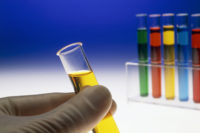European Commission Establishes Raw Materials Alliance
The European Raw Materials Alliance has been established in recognition of the critical importance of raw materials to the European Union’s security, sustainability, and industrial leadership.

The European Commission, represented by Maroš Šefčovič, vice president, and Thierry Breton, commissioner for Internal Market, recently launched the European Raw Materials Alliance (ERMA), with the presence of other European Union (EU) institutions, national ministers, industry, unions, and civil society organizations, as well as key industry stakeholders. The alliance has been established in recognition of the critical importance of raw materials to the EU’s security, sustainability, and industrial leadership. If Europe is to deliver a Green Deal and a digital transition, and remain a leader in future technologies, it faces a significant increase in demand for critical raw materials.
The European Commission reports that ERMA will identify barriers, opportunities, and investment cases to build capacity at all stages of the raw materials value chain, from mining to waste recovery. In a first phase, the alliance is focusing on the most pressing need, which is to increase EU resilience in the rare earths and permanent magnets value chains, as these are vital to most EU industrial ecosystems. In addition to rapidly rising demand driven by electric vehicles and energy storage, demand for rare earths critical for products like wind turbines could increase tenfold by 2050. Later, ERMA will expand to address other critical and strategic raw material and base metal needs, such as materials for energy storage and conversion.
“Our strategic foresight shows clearly that the demand for critical raw materials is only going to rise, especially given the ongoing transition towards a green and digital economy,” said Šefčovič. “The pandemic has also highlighted the criticality of raw materials for our recovery. To secure a sustainable supply of raw materials we need to join forces across Europe, as we have done for the EU Battery Alliance. The European Alliance on Raw Materials will mobilise industrial and innovation actors, Member States, regions, the EIB, investors and civil society—to help build our capacities and investment cases along the entire value chain, from extraction to processing and recycling. This will in turn strengthen our resilience and boost our open strategic autonomy.”
“The European Raw Materials Alliance is an important step in strengthening the industrial ecosystems that depend on raw materials,” Breton said. “The Alliance will accelerate the green and digital transition by reinforcing value chains, diversifying supplies and involving all willing partners in implementing the necessary actions. We invite all stakeholders, civil society organizations, researchers, companies large and small, Member States and regions, to help us achieve these objectives.”
The alliance, which is supported by over 150 stakeholders across multiple industrial sectors and value chains, is open and will mobilize all industrial and innovation actors, member states, regions, the European Investment Bank (EIB), investors, and civil society. Supporters are asked to sign a declaration, committing to ERMA’s shared vision and to actively contribute to the alliance’s work.
The alliance is managed by EIT RawMaterials. “Raw materials will play a vital role to the revival, autonomy and resilience of Europe’s integrated industrial ecosystems,” said Bernd Schäfer, CEO of EIT RawMaterials. “With the European Raw Materials Alliance, we have a true European answer based on the knowledge and expertise of more than 150 stakeholders/partners. Together we can turn Europe’s raw material dependency into a major strategic strength for our continent, while continually applying the highest environmental and social standards. We are honored to manage the European Raw Materials Alliance, which will drive diversification of sustainable supply and help make better use of the resources available within the EU.”
Additional details are available at https://erma.eu.
Looking for a reprint of this article?
From high-res PDFs to custom plaques, order your copy today!



.jpg?height=200&t=1704834340&width=200)

